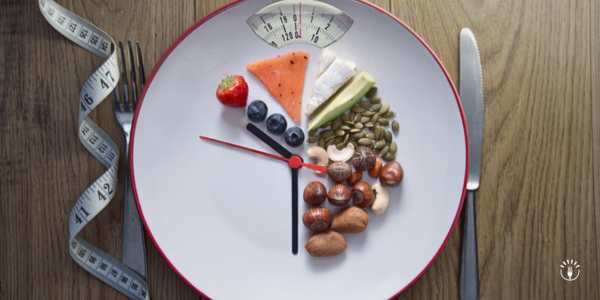
Holidays often bring about not only sugar and fat-laden food choices, but plenty of them. Enjoy the upcoming anticipated time of the year, without bargaining health goals, with these 11 tips for healthy holiday eating!
11 Tips for Healthy Holiday Eating
1. Incorporate Physical Activity
Though not directly an act of eating, exercise is a substantial piece to the health puzzle. Starting the day with a quick workout or walking the dog around the neighborhood can facilitate healthier choices throughout the day. Being active not only burns calories, but supports mental health and valuable senses of well-being, keeping you both healthy and happy this holiday season.
2. Eat Prior
While it may seem like a sensible effort to skip out on meals and snacks leading up to the holiday party, most health exports discourage you from such a practice. Disregarding hunger cues can ultimately build a potion of ravenous tendencies, only to overeat and binge on any (and all) foods once available and accessible.
3. Scope the Scene
When you first grab a plate, it is instinct to head down the food line and scoop out foods down its path. But before jumping in and taking out large scoops, fully scope out the options. Make mental notes of what you truly want on your plate, whether it is an annual favorite or a conscious healthful choice. Some sort of food game plan diminishes the risk of overeating, saving you on hundreds of calories.
4. Load Up
Well, on lower calorie foods! Though you can absolutely select those traditional favorites, also choose foods from the fruit and veggie platters along with protein sources. The combination of fiber and protein encourages satiation and weakens the desire for a second plate.
5. Eat from Small Plates
Though quite mental, filling up and eating from smaller plates can reduce the risk of overeating. So when approaching the food line, try to find the smallest plate size available. And if they all seem uniform and large in size, try to fixate on the plate's center, straying away from overloading and mounding up foods.
6. Sip on Water
Drinking a glass of water leading up to mealtime can minimize the likelihood of overfilling on food, as the stomach will be occupied with water and leave lesser room for food. And if temptations start to arise, sip on water rather than feeding into the food invitation. Staying distracted with water (or other calorie-free drinks) can ultimately disrupt pesky cravings entirely.
7. Rethink Seconds
If desiring seconds or developing a craving, wait at least 10 to 15 minutes before grabbing a second plate or helping. More times than none, the temptation will subside, potentially saving you from hundreds of unwanted and unnecessary calories. If hunger truly continues to strike, gravitate towards lower calorie foods, as indicated in tip number four.
8. Distance Yourself
Stay close to friends and family, but distanced from the appetizer and dessert bars. Standing near tempting foods intensely heightens the risk of grabbing such foods, ultimately increasing the risk of mindless eating practices. If you find yourself reaching towards snacks and sweets, especially in absence of hunger, keep distance between yourself and the foods.
9. Limit Alcohol
Watching alcohol intake keeps calories in check in two fashions. First off, alcohol does provide calories. Pair with sugar-laden mixers, and the calorie content can spike astronomically. Consume alcohol in excess, you not only obtain calories from the drinks, but further increase the likelihood of poor food choices. And not to mention, the strong desire to seek out (more than likely) innutritious foods the morning after...
10. Simple Swaps
Unlike popular belief, healthy can taste good! In fact, simple ingredients swaps can not only offer greater nutrients to foods, but do so without compromising anticipated textures and flavors. Check out these healthy substitutes this holiday season!
11. Sustain and Maintain
Although it is completely admirable to still desire weight loss come holiday season, most health experts agree weight maintenance is encouraged. Individuals are likely to use this time as an excuse to binge eat and overindulge. And though you can still enjoy such foods, further sustain good eating practices by listening to hunger and satiety cues while paying attention to both food quantity and quality.






